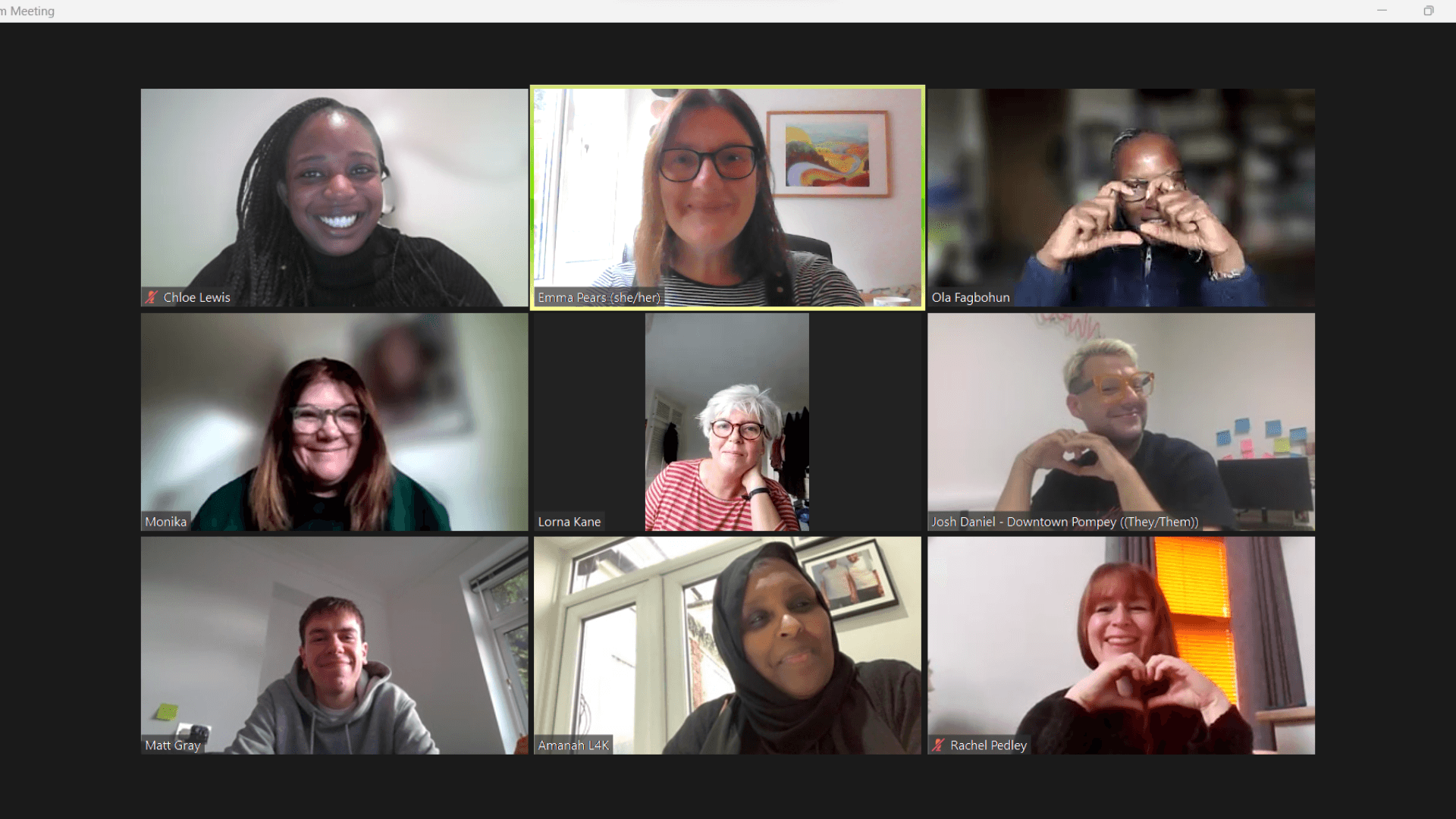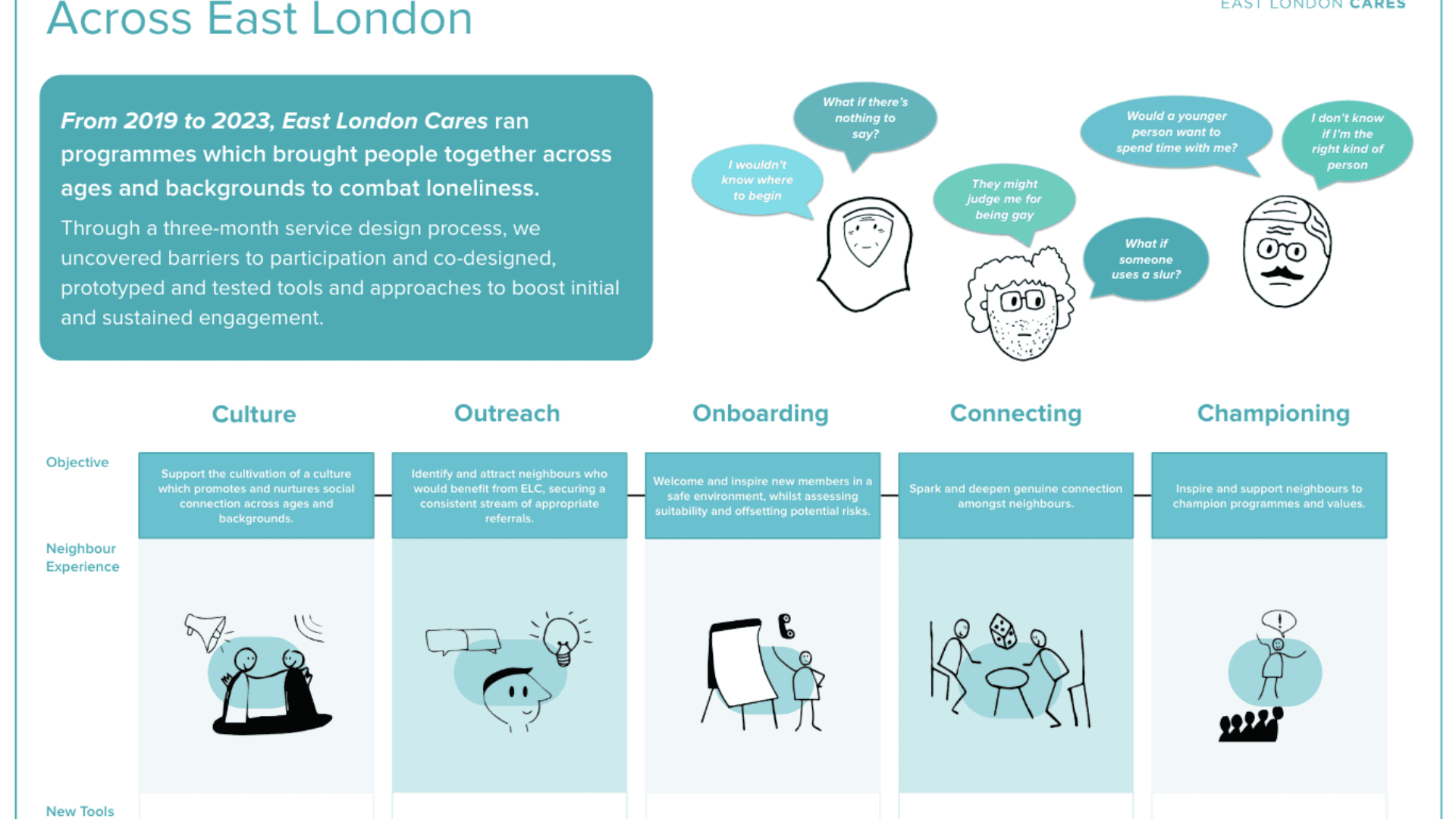
Nurturing inclusive communities accountable to one another
Posted by The Cares Family on 9th December 2020
Please note: this post is 51 months old and The Cares Family is no longer operational. This post is shared for information only
In summer 2020, communities around the world unified in expressing an urgent need to radically accelerate action towards racial equality. At the time, The Cares Family convened to reflect on our own approach in this area. We recognised then that in order to effectively reduce isolation and loneliness in the communities in which we work, and to help shift systems and cultures so that a broader environment of inclusion could prosper, we need to be an expressly anti-racist organisation.
To get there, we made a commitment to anti-racist action and to take steps to create a culture of safety, trust and representation through our internal policies, procedures and processes including in HR and governance; and in our external programmes, fundraising, recruitment and communications.
We recognised that this work would take time and stamina, and a fundamental shift in our internal narrative – that our staff and leadership needed to understand the context in which the organisation would re-shape its culture.
Learning
To get started, all 40+ team members at The Cares Family completed a five-week mentoring programme centring on the history of oppression and privileges, the realities of micro-aggressions in interpersonal relationships, and the unique opportunities for an intergenerational organisation to make a positive difference on this agenda.
Staff examined practical considerations such as the impact of language, how age can intersect with race and gender, and how to be accountable to our values. With space for open conversation, they were guided with tools to begin to independently spot ways to embed anti-racism into their daily processes.
Over the course of the five weeks, confidence visibly grew and team members of all races, at all levels, across all our charities, were contributing personal experiences, queries, where they'd stood up and where they'd fallen short. With a firm understanding of the organisation’s direction and the confidence to share ideas, staff naturally began highlighting gaps as well as offering anti-racism solutions to fill them.
Accountability
We could sense that we were on the right track, but to hold ourselves to account, we completed internal surveys to confirm our progress.
On average, staff rated the mentoring nine out of ten with regard to improved knowledge of systemic oppression and racism. Eight out of ten felt more equipped to do their work through an anti-racist lens. 100% of staff reported having implemented tools acquired through training in their roles.
Staff also reported feeling ‘validated’ and ‘more confident’ in sharing ideas on difficult topics. They reported feeling 80% more trust in their colleagues, 80% more confident to engage with leadership on difficult matters as a result of the training, and 80% more likely to stay at the organisation. Moreover, many felt that the organisation's investment in re-culturing has had a positive impact on them personally.
The Cares Family's core work
As our teams have learned how to better connect with and represent their communities our social clubs have diversified in content. And in turn, a more diverse programme has led to even deeper connection between the people we are here to connect – older and younger neighbours in London, Liverpool and Manchester.
At an intergenerational virtual social club about anti-racism, Catherine said:
'I loved talking to Kate. It was a deep five minutes and I got to know her more in that time than in the years I’ve known her talking about superficial topics.'
Older neighbour Kate mirrored Catherine’s comment, saying:
‘It’s always easier to understand when you can talk to someone else. It was the start of a conversation.’
As we move forward with deepening our culture of inclusion, neighbours continue to offer encouraging feedback and to feed into how clubs can be more inclusive in the future. And as we look to 2021, we're excited about the work ahead – to make more space for our neighbours to shape our programmes, our culture and the impact we can make in communities over the years to come.


